sol2070 finished reading Ainda estou aqui by Marcelo Rubens Paiva
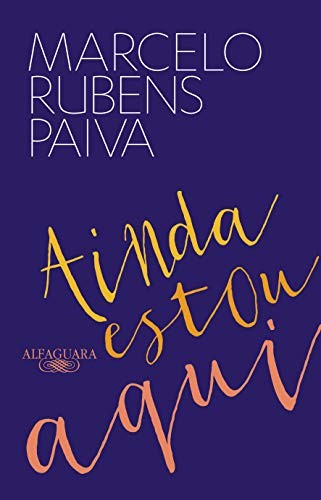
Ainda estou aqui by Marcelo Rubens Paiva
Marcelo Rubens Paiva traça uma história dramática da luta de sua família pela verdade.
Trinta e cinco anos depois de …
Costumo ler fic-spec, filosofia, sobre natureza, política, tech etc. Mais livros no blog → sol2070.in/livros Também escrevo ficção científica → fic.sol2070.in/ Mastodon → @[email protected] Clube do livro Contracapa → contracapa.club
This link opens in a pop-up window

Marcelo Rubens Paiva traça uma história dramática da luta de sua família pela verdade.
Trinta e cinco anos depois de …
( sol2070.in/2024/09/livro-ainda-estou-aqui-marcelo-rubens-paiva/ )
Em "Ainda Estou Aqui" (2015), Marcelo Rubens Paiva conta a história de sua mãe Eunice (e da doença de Alzheimer que a acometeu), do assassinato de seu pai pela ditadura brasileira, da luta pela admissão do crime pelo Estado, além de suas memórias de infância e juventude.
É uma narrativa poderosa não apenas sobre a tirania militar, mas também sobre família e trauma. Como é uma mistura de memórias com reportagem, o estilo fluído coloquial característico do autor alterna com trechos de documentos e depoimentos. Também é o livro que eu estava procurando sobre a ditadura, mais de experiência de vida do que de história. Provoca não apenas revolta, mas também gargalhadas e lágrimas.
Está sendo bastante comentado devido ao novo filme de Walter Salles — a ser lançado. Marcelo é um dos autores brasileiros que mais gosto, tinha marcado seus livros que não li e a …
( sol2070.in/2024/09/livro-ainda-estou-aqui-marcelo-rubens-paiva/ )
Em "Ainda Estou Aqui" (2015), Marcelo Rubens Paiva conta a história de sua mãe Eunice (e da doença de Alzheimer que a acometeu), do assassinato de seu pai pela ditadura brasileira, da luta pela admissão do crime pelo Estado, além de suas memórias de infância e juventude.
É uma narrativa poderosa não apenas sobre a tirania militar, mas também sobre família e trauma. Como é uma mistura de memórias com reportagem, o estilo fluído coloquial característico do autor alterna com trechos de documentos e depoimentos. Também é o livro que eu estava procurando sobre a ditadura, mais de experiência de vida do que de história. Provoca não apenas revolta, mas também gargalhadas e lágrimas.
Está sendo bastante comentado devido ao novo filme de Walter Salles — a ser lançado. Marcelo é um dos autores brasileiros que mais gosto, tinha marcado seus livros que não li e a notícia sobre a efusiva recepção que o filme ganhou no festival de Cannes fez essa obra — responsável pelo terceiro prêmio Jabuti do autor — furar a fila de leitura.
Seu livro que mais me marcou foi "Blecaute" (1986), uma história apocalíptica em que sobram três jovens em São Paulo. Foi a primeira leitura obrigatória na escola que me deixou realmente fascinado.
@[email protected] Valeu! Acho que o poder dessas histórias é justamente esse: deixar pensando quem normalmente não faria isso. É um primeiro passo.
@yuribravos Eu gosto de solarpunk, mas, das duas palavras, sou mais o "punk". Cyberpunk, steampunk, hopepunk etc... Sem o "-punk", que é o confronto com o sistema destrutivo, a coisa vira otimismo ingênuo. Costumo ver gente falando de solarpunk, sem perceber muito do que se trata.
@yuribravos Verdade. Solarpunk seria como o lado sim, e distopia, o lado não. Mas acho complicado partir afobadamente para o "sim, vamos ter um futuro maravilhoso", sem muita compreensão sobre o "não, um mero ajuste do modo atual nunca vai funcionar". Do contráŕio, em vez de solarpunk, é puro greenwashing.
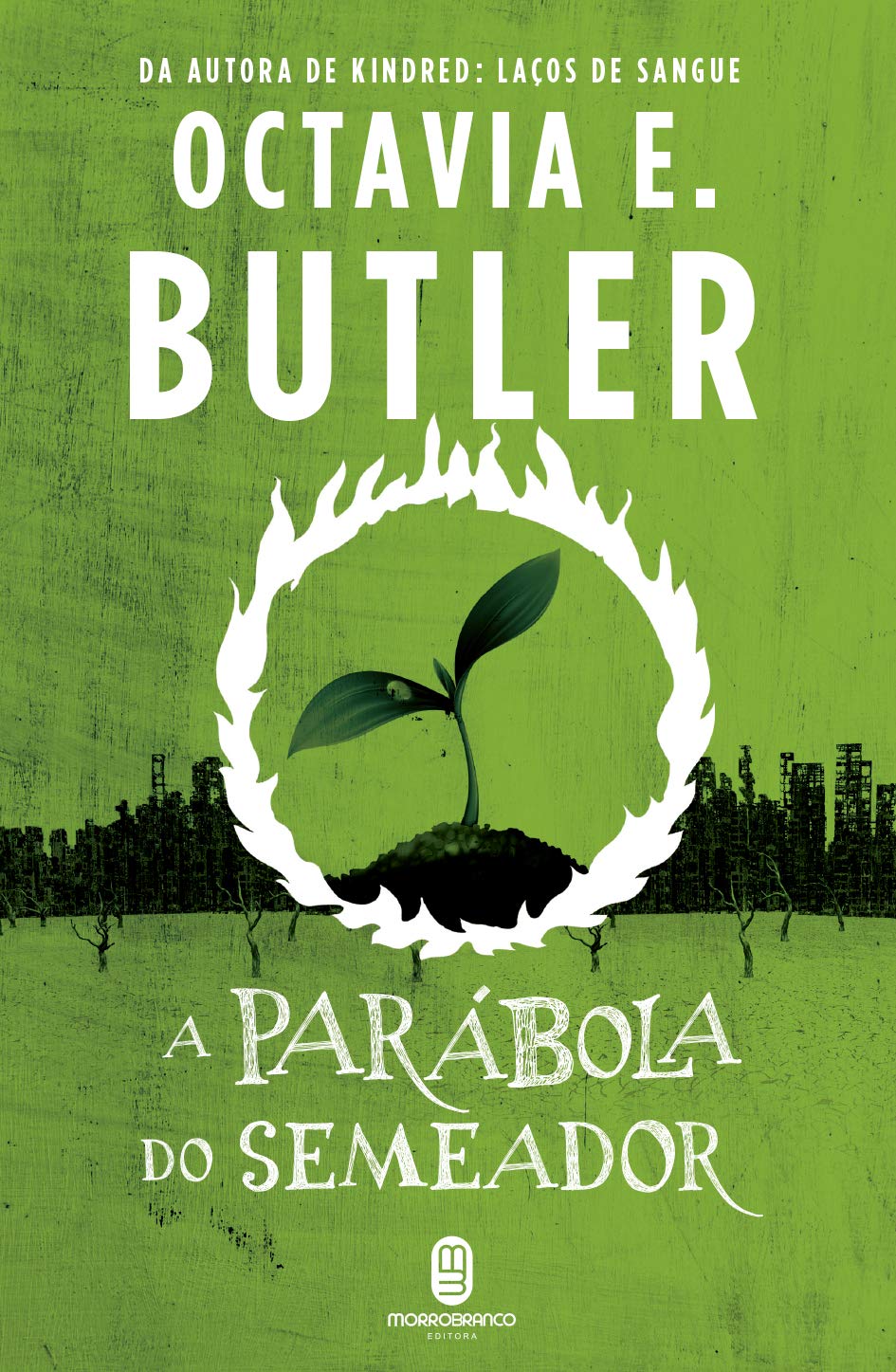
Quando uma crise ambiental e econômica leva ao caos social, nem mesmo os bairros murados estão seguros. Em uma noite …
(original, com reprodução de entrevista → sol2070.in/2024/09/livro-parabola-do-semeador-entrevista-octavia-butler/ )
"A Parábola do Semeador" ("Parable of The Sower", 1993) talvez seja o livro mais admirado da estadunidense Octavia Butler. Além dos prêmios que recebeu há 30 anos, voltou a ser muito lido recentemente por ser, além de um ótimo romance, um dos mais vívidos retratos da catástrofe climática — boa parte da história se passa entre 2024 e 2027.
Apesar de não ser leitura fácil, está entre as melhores distopias que já li. O horror dos primeiros anos de um colapso social total devido à emergência climática e ao sistema econômico é chocante a ponto de precisar baixar o livro e respirar de tempos em tempos. Ouvi gente dizendo que não suportou e largou.
É uma predição assustadoramente plausível do que pode acontecer, incluindo até a volta da escravização — a culminação da atual piora constante das condições de trabalho apontaria para …
(original, com reprodução de entrevista → sol2070.in/2024/09/livro-parabola-do-semeador-entrevista-octavia-butler/ )
"A Parábola do Semeador" ("Parable of The Sower", 1993) talvez seja o livro mais admirado da estadunidense Octavia Butler. Além dos prêmios que recebeu há 30 anos, voltou a ser muito lido recentemente por ser, além de um ótimo romance, um dos mais vívidos retratos da catástrofe climática — boa parte da história se passa entre 2024 e 2027.
Apesar de não ser leitura fácil, está entre as melhores distopias que já li. O horror dos primeiros anos de um colapso social total devido à emergência climática e ao sistema econômico é chocante a ponto de precisar baixar o livro e respirar de tempos em tempos. Ouvi gente dizendo que não suportou e largou.
É uma predição assustadoramente plausível do que pode acontecer, incluindo até a volta da escravização — a culminação da atual piora constante das condições de trabalho apontaria para onde?
Li nesses dias uma resenha sobre outro livro — "Alerta Vermelho", de Marha Wells (está na minha lista) — em que o autor reclama do cenário de capitalismo distópico como sendo um lugar-comum pouco criativo. Ele parece preferir cenários otimistas, que ajudam a imaginar futuros mais plenos. Já eu gosto de histórias de distopias catastróficas justamente porque abrem os olhos para o presente — sem isso, não teremos a menor chance. O desconforto, ou até angústia, fazem parte. Parece-me um negacionismo sutil querer evitar o desagradável. Além disso, essas histórias retratam como as pessoas lidam com a situação. Acabam sendo bem práticas para o momento atual.
Entretanto, acho sim certa falta de imaginação aquele cenário comum em que, sem governo e polícia, as pessoas passam apenas a predar umas às outras. Isso não falta em A Parábola do Semeador. Mas como é um tempo de transição, em que os valores da civilização sendo destruída ainda não foram substituídos, faz sentido.
Na história, acompanhamos Lauren, uma adolescente com hiperempatia, a capacidade (fictícia) de sentir involuntariamente em seu corpo a dor e prazer de seres próximos. Após a comunidade murada onde vive ser destruída, ela precisa enfrentar a estrada. Ao buscar sentido, seus questionamentos acabam dando forma a uma nova filosofia-religião, em que “Deus = mudança”, ou seja, o único princípio universal é a constante transformação. Por questão de sobrevivência, pessoas vão se reunindo em torno dela, e a compaixão da comunidade que vai se formando acaba sendo uma tocante utopia dentro da distopia.
Octavia Butler disse que escreveu essa história como se fosse a autobiografia (a narração é feita em um diário, que parece reproduzir até os erros de grafia que existiriam em um original do tipo) da fundadora da religião que se disseminou pelo mundo devastado.
"A Parábola do Semeador" é o primeiro volume de uma série interrompida pela morte da autora, em 2006, após o segundo volume, "A Parábola dos Talentos". Entretanto, a história vale por si só, independentemente dos volumes que não chegaram a ser escritos.
"Even if you shoot the trespassers yourself, you still need others to agree you were within your rights to do so. In other words, ‘landed property’ is not actual soil, rocks or grass. It is a legal understanding, maintained by a subtle mix of morality and the threat of violence. In fact, land ownership illustrates perfectly the logic of what Rudolf von Ihering called the state’s monopoly of violence within a territory — just within a much smaller territory than a nation state."
(em português → sol2070.in/2029/08/livro-jonathan-abernathy-you-are-kind/ )
"Jonathan Abernathy You Are Kind" (2023), by Molly McGhee, is a stupendously sad satire that's hard to put down. Dystopian science fiction about meaningless work, depression, romance and loneliness.
The atmosphere is very reminiscent of the Brazilian classic "The Hour of the Star" (1977), by Clarice Lispector, as well as the film "Eternal Sunshine of a Spotless Mind" (2004). But there's a macabre humour.
I didn't catch the spirit of it at first and abandoned it within the first twenty pages. I didn't get the tone, which seemed too derogatory: the protagonist of the title is dull and miserable in every way, and spends his time filling his mind with self-help affirmations, like the phrase that gives the book its name.
As I kept hearing praise for the book from people I trust, I gave it another go. What I hadn't picked up on was …
(em português → sol2070.in/2029/08/livro-jonathan-abernathy-you-are-kind/ )
"Jonathan Abernathy You Are Kind" (2023), by Molly McGhee, is a stupendously sad satire that's hard to put down. Dystopian science fiction about meaningless work, depression, romance and loneliness.
The atmosphere is very reminiscent of the Brazilian classic "The Hour of the Star" (1977), by Clarice Lispector, as well as the film "Eternal Sunshine of a Spotless Mind" (2004). But there's a macabre humour.
I didn't catch the spirit of it at first and abandoned it within the first twenty pages. I didn't get the tone, which seemed too derogatory: the protagonist of the title is dull and miserable in every way, and spends his time filling his mind with self-help affirmations, like the phrase that gives the book its name.
As I kept hearing praise for the book from people I trust, I gave it another go. What I hadn't picked up on was the nuance in the way the story is told (there are revelations about this at the end). No, the story doesn't make fun of the victims of hyper-capitalist misfortune, quite the opposite.
The book finally got going and I finished it in a few days. It was one of the best dystopian stories I've ever read. It ravages the heart without mercy, but there are also memorable breaths of tender beauty. When I finished the book, I kept trying to understand what had just hit me.
The protagonist, Abernathy, lives the reality of terminal indebtedness, which is now common in the USA, especially among young people. In the country that would be the richest in the world according to the GDP metric, it is common for recent college graduates not to get jobs in their fields, sometimes spending decades underemployed just to pay the interest on the debts they took out to study.
This isn't exactly the case for Abernathy, his story is even worse. But he does get a job as a ‘dream auditor’. Corporations and the government are dealing with the epidemic of mental disorders (not at all fictitious) with a new technology capable of removing the disturbing elements from their minds by invading their night-time dreams. In this way, the massive drop in productivity that threatens the economy can be reversed. By day, Abernathy sells hot dogs; by night, when he goes to sleep, he has to immerse himself in other people's nightmares and traumas.
Fiction with a visceral political critique done in an exemplary way.
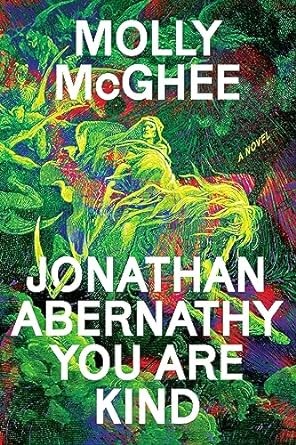
“A scathing critique of capitalism that holds onto the humanity of its characters.” —Laura Zornosa, TIME
Jonathan Abernathy is a …
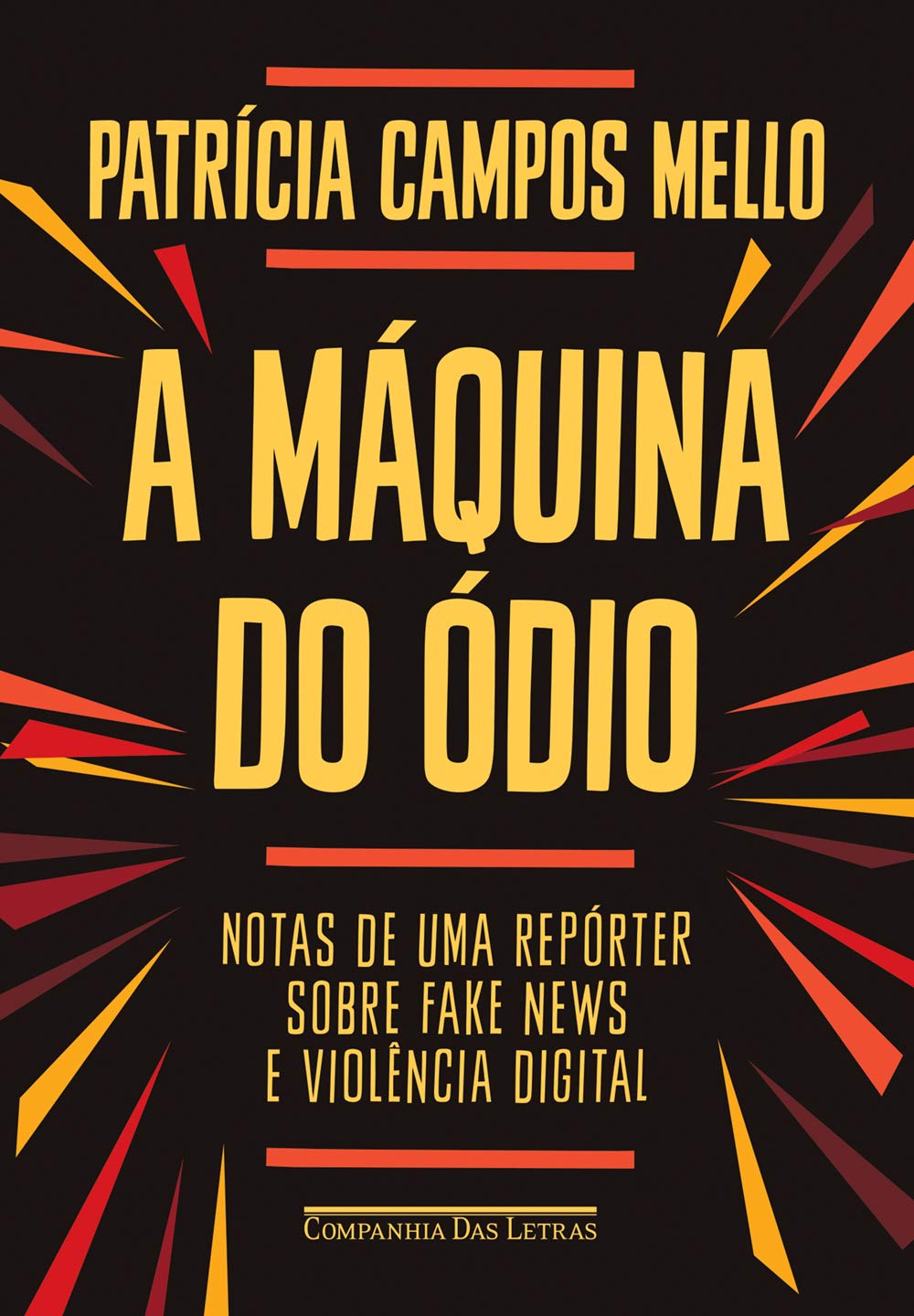
O relato de uma das maiores jornalistas da atualidade sobre as ameaças à liberdade de imprensa no Brasil e no …
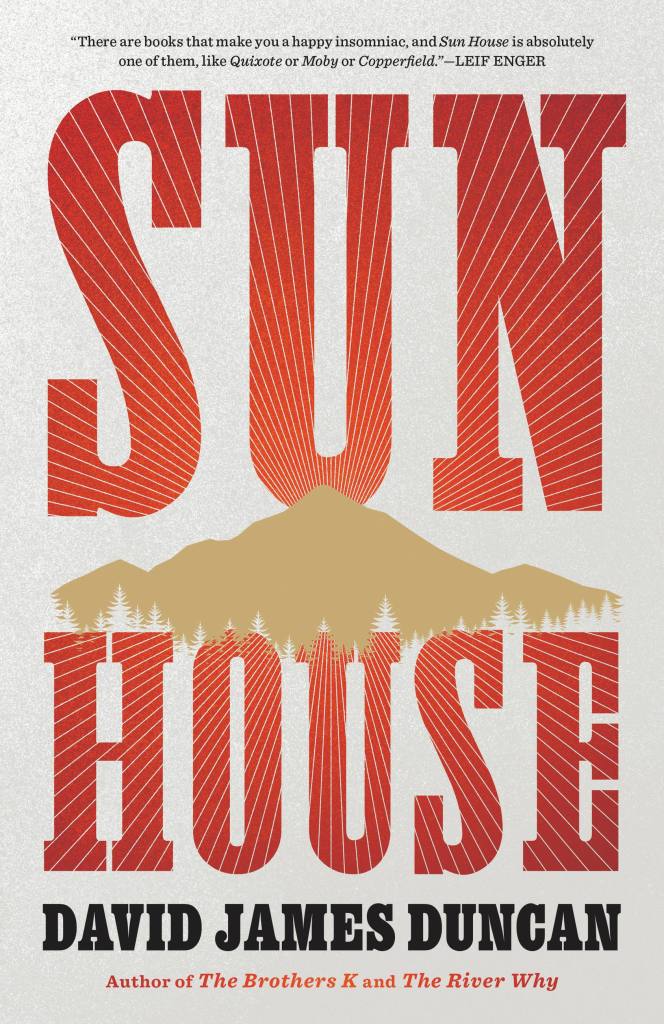
An epic comedy about the quest for transcendence in an anything-but-transcendent America, set amid the gorgeous landscapes of the American …
(em português com links → sol2070.in/2024/08/livro-sun-house-david-james-duncan/ )
A few books are more than literature, they are a major event in life. ‘Sun House’ (2023), by David James Duncan, is one of the three or four in which I've felt this.
It's a nearly 800-page epic about how a handful of people in the US, facing the various degenerations of the world in recent decades, end up converging in a natural area in the state of Montana.
I laughed a lot at the ingeniously miraculous scenes. I cried not only at major or minor calamities, but also at the transcendent melting in the reconnection with the essence of nature that permeates the story - although this sounds new age, it's far from it.
Yes, it's an intensely spiritual book, but it clashes head-on with institutions, dogmas and preaching, based more on direct experience of the lost essential dimension. For example, one …
(em português com links → sol2070.in/2024/08/livro-sun-house-david-james-duncan/ )
A few books are more than literature, they are a major event in life. ‘Sun House’ (2023), by David James Duncan, is one of the three or four in which I've felt this.
It's a nearly 800-page epic about how a handful of people in the US, facing the various degenerations of the world in recent decades, end up converging in a natural area in the state of Montana.
I laughed a lot at the ingeniously miraculous scenes. I cried not only at major or minor calamities, but also at the transcendent melting in the reconnection with the essence of nature that permeates the story - although this sounds new age, it's far from it.
Yes, it's an intensely spiritual book, but it clashes head-on with institutions, dogmas and preaching, based more on direct experience of the lost essential dimension. For example, one of the characters - a wanderer who says ‘the fuck!’ every two sentences and spends the day interacting with random people on the street - ends up inspiring the emergence of ‘rubbish bin Catholicism’, which revives the experience of people executed or excommunicated as heretics by the Church.
All the familiar spiritual references in the book really resonated with me - although I don't write much about it here, the secular mystical experience is an essential part of my life - especially how it connects with nature and the current planetary polycrisis.
But the spirituality of "Sun House" -- which actually takes up about 30 per cent of the pages -- doesn't eclipse the rest, it runs through it. There is no shortage of romance (even love at first sight), family trauma, friendship, music and natural adventure.
In the afterword, David says that it took him 16 years to write the book:
‘Seventeen years ago, in a world in which the problems facing humanity and every living thing had overwhelmed our politics and many a politician’s sanity, I came to feel the world situation is so darkly mythic; epic; overwhelming, that only a collectively mythic and epic response stood a chance of righting the countless wrongs. But though I’d seen countless op-eds calling for a change of consciousness if humanity is to survive, I’d seen zero op-ed descriptions of what this consciousness looks, feels, tastes, sounds, and lives like as it addresses inescapable biological and spiritually realities with the love, truthfulness, and justice they demand.’
Despite the immensity of the project, this is what he has managed to do with Sun House, his third novel, after two cult countercultural bestsellers - ‘The River Why’ (1983) and ‘The Brothers K’ (1992), which I haven't read yet.
The profuse inventiveness reminded me of writers like Salman Rushdie and Thomas Pynchon's ‘Gravity's Rainbow’, with the advantage of being an author whose political, spiritual and cultural inclinations seem perfectly aligned with my own.
It's one of those books where you come away loving the characters wholeheartedly, as if they were part of your life. Almost half of the book delves into the stories of each character and, little by little, they all become intertwined.
Towards the end, it's revealed what the ‘Sun House’ of the title is, in one of the most vividly sweeping natural pantheistic mythologies I've ever seen. The ending itself is epic enough to take to the grave.
If you read in English and are interested in nature, utopia, the search for meaning and spirituality without hauntings and institutions, all tied together in a very well-told story, ‘Sun House’ is the book.
Link to how they're praising the book → www.davidjamesduncan.com/sun-house ).
(resenha publicada em sol2070.in/2024/08/livro-a-travessia-cormac-mccarthy/ )
"A Travessia" (1994) é o segundo volume da Trilogia da Fronteira, do estadunidense Cormac McCarthy. É um dos autores que mais admiro e esse foi não só seu melhor livro que já li, como entra fácil na lista de melhores de todos os tempos.
McCarthy se consagrou com suas grandes histórias atemporais, que poderiam se passar em qualquer lugar em qualquer tempo, realçando os contornos míticos da realidade. Sabe aqueles filmes em que cada quadro é uma pintura? Ele faz o equivalente na literatura.
Os elementos principais de A Travessia são estrada, amadurecimento, violência, natureza e ruína humana. Se passa na fronteira entre EUA e México, nos anos 40. Uma loba fora do lugar — a espécie estava extinta na região — perturba os arredores de uma fazenda de gado, e um adolescente é encarregado de caçá-la. Esse é o fator que desencadeia uma série …
(resenha publicada em sol2070.in/2024/08/livro-a-travessia-cormac-mccarthy/ )
"A Travessia" (1994) é o segundo volume da Trilogia da Fronteira, do estadunidense Cormac McCarthy. É um dos autores que mais admiro e esse foi não só seu melhor livro que já li, como entra fácil na lista de melhores de todos os tempos.
McCarthy se consagrou com suas grandes histórias atemporais, que poderiam se passar em qualquer lugar em qualquer tempo, realçando os contornos míticos da realidade. Sabe aqueles filmes em que cada quadro é uma pintura? Ele faz o equivalente na literatura.
Os elementos principais de A Travessia são estrada, amadurecimento, violência, natureza e ruína humana. Se passa na fronteira entre EUA e México, nos anos 40. Uma loba fora do lugar — a espécie estava extinta na região — perturba os arredores de uma fazenda de gado, e um adolescente é encarregado de caçá-la. Esse é o fator que desencadeia uma série de andanças pelas ruínas da Revolução Mexicana e a conflagração completa de sua vida. É aquela história humana primordial: um problema bate na porta e ao sair para tentar resolver a situação, aprende-se um tanto enorme sobre o que é o mundo.
O talento único de McCarthy que o distinguiu como um dos maiores autores norte-americanos do século 20 é esculpir narrativas, desde o nível de frases e (ausência de) vírgulas, que evocam a dimensão lendária da existência humana.
Ao mesmo tempo que é literatura no estado da arte, envolve completamente, quase como um vira-páginas.
A transmissão é feita nas entrelinhas das frases lapidares. Por exemplo, a loba. O rapaz sente um temor fascinado por tudo o que ela encarna. É um portal encantado como a baleia de Moby Dick. Isso está na coração do protagonista, é como ele enxerga o mundo, um anseio ancestral. Em nenhum momento ele diz nada a respeito, mas não há dúvida sobre isso.
Havia lido o primeiro volume da trilogia, "Todos os Belos Cavalos" (1992), há 25 anos. Era muito diferente do que costumava ler — ficção científica e beatniks — e, apesar de ter sentido o poder da história, devo ter capturado só uns 30% da beleza. Vou reler. São livros para a vida toda.
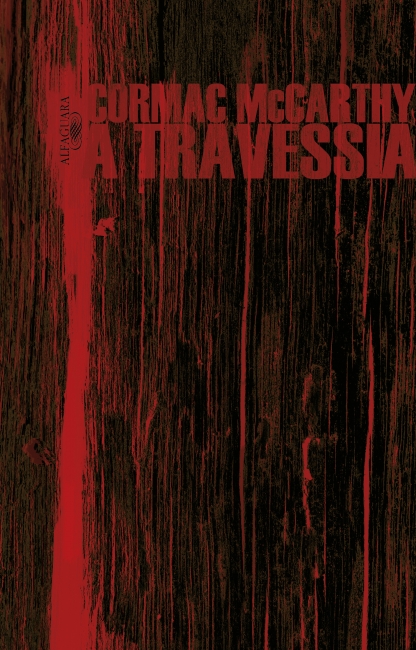
Depois de Todos os belos cavalos, Cormac McCarthy continua sua Trilogia da Fronteira, apresentando agora Billy Parham, um menino de …